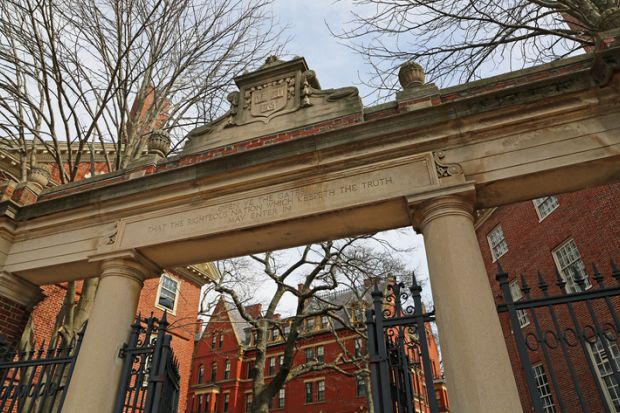Harvard University will resume its standardised testing requirement with next year’s admissions cycle, giving a high-profile boost to a growing trend of institutions concluding that the once-maligned tool looks better than its more regressive alternatives.
The Ivy League institution said it had made its decision – a reversal from a previous commitment to keep its test-optional stance for at least two more years – in part because of research by its own experts, who found that equity is improved when standardised tests are part of a wider set of considerations.
“Admission officers understand that not all students attend well-resourced schools,” Harvard’s dean of admissions and financial aid, William Fitzsimmons, said in announcing the shift, “and those who come from modest economic backgrounds or first-generation college families may have had fewer opportunities to prepare for standardised tests.”
That assessment is similar to the reasoning offered by another Ivy League institution, Dartmouth College, when it announced in February that it would resume using standardised tests in admissions. Several other institutions have joined in, including Yale and Brown universities.
Campus resource: How to ensure college admissions are equitable and accessible
Selective admission institutions in the US had been gradually moving away from standardised testing requirements in recent years, concerned that the exams harm low-income and minority students because the questions make biased assumptions and because wealthier students can afford professional preparation and the cost of repeated test attempts.
That position strengthened during the pandemic lockdowns to the point where the overwhelming majority of US colleges and universities were not requiring the exams, which commonly include the SAT and ACT.
But with the reconsideration led by Dartmouth and others – now including the symbolically important position of Harvard – opponents of standardised testing have expressed alarm that standardised testing is regaining traction.
The nation’s leading critic of standardised testing, the National Centre for Fair and Open Testing, or FairTest, has insisted that nothing fundamental has changed about the realities of such tests. “Using the SAT as the gatekeeper for higher education,” FairTest argued in response to the rising number of reversals, “turns out to test one thing above all else: existing station in life.”
Yet Harvard is home to some leading experts on race and economics, including Raj Chetty, a professor of economics whose team has assembled data showing that SAT and ACT scores strongly predict long-term student outcomes in college. Dartmouth cited Professor Chetty’s work, along with that of its own experts, in explaining its decision, and Harvard has now done the same.
In a statement accompanying Harvard’s announcement, Professor Chetty said he agreed that standardised tests were not an unbiased measure of student qualifications. “But the data reveal that other measures – recommendation letters, extracurriculars, essays – are even more prone to such biases,” he said. “Considering standardised test scores is likely to make the admissions process at Harvard more meritocratic while increasing socioeconomic diversity.”
Harvard has faced especially high scrutiny of its admissions policies arising from a lawsuit over its use of racial considerations in its admissions process – a practice that was long endorsed by the US Supreme Court until last year, when the now conservative-majority court reversed its position. Harvard, however, has also refused to end its practice of granting admissions preferences to students with alumni and donor ties – a group that is overwhelmingly white and has been accounting for more than a third of its entering class.
Register to continue
Why register?
- Registration is free and only takes a moment
- Once registered, you can read 3 articles a month
- Sign up for our newsletter
Subscribe
Or subscribe for unlimited access to:
- Unlimited access to news, views, insights & reviews
- Digital editions
- Digital access to THE’s university and college rankings analysis
Already registered or a current subscriber? Login








